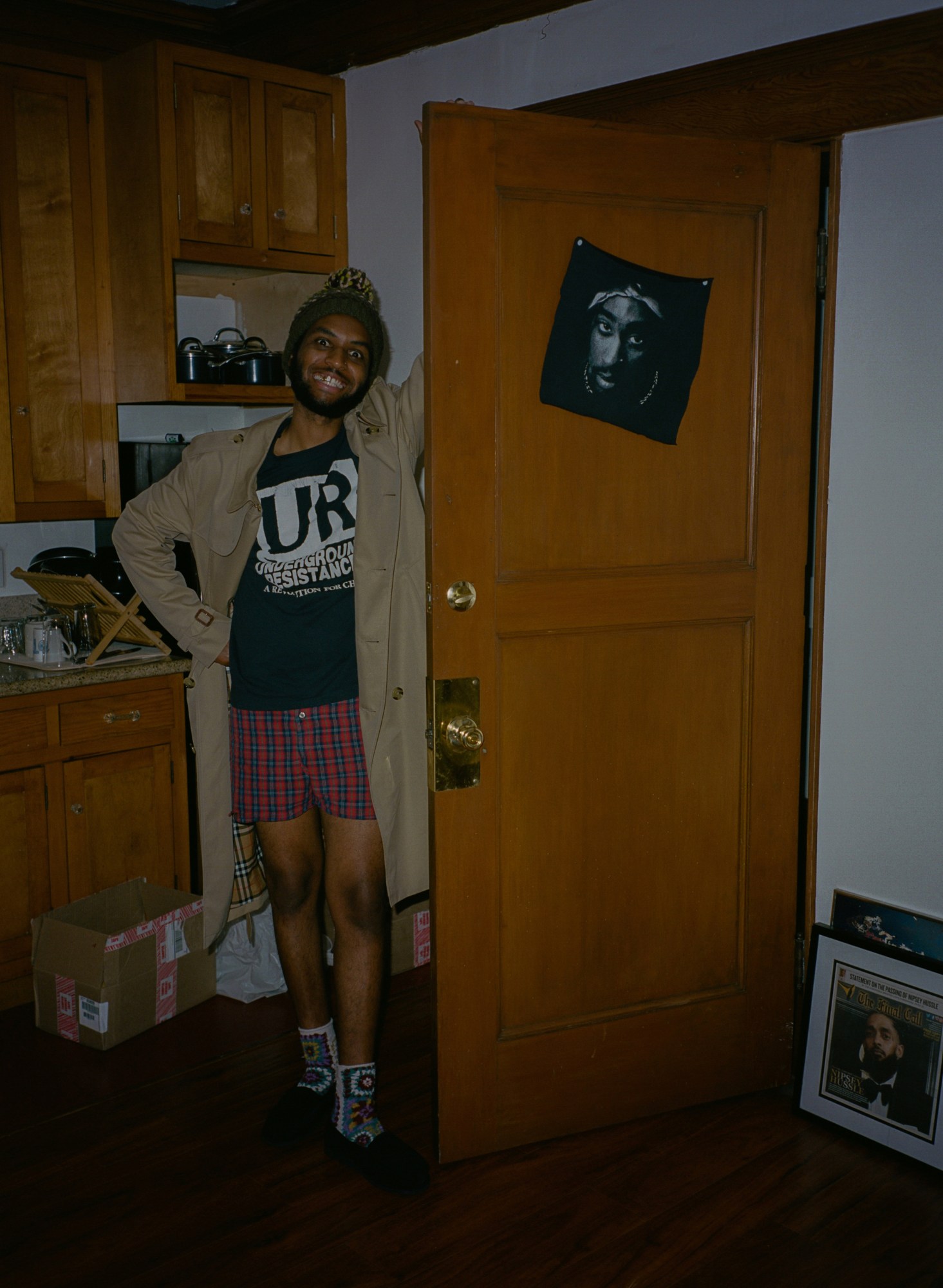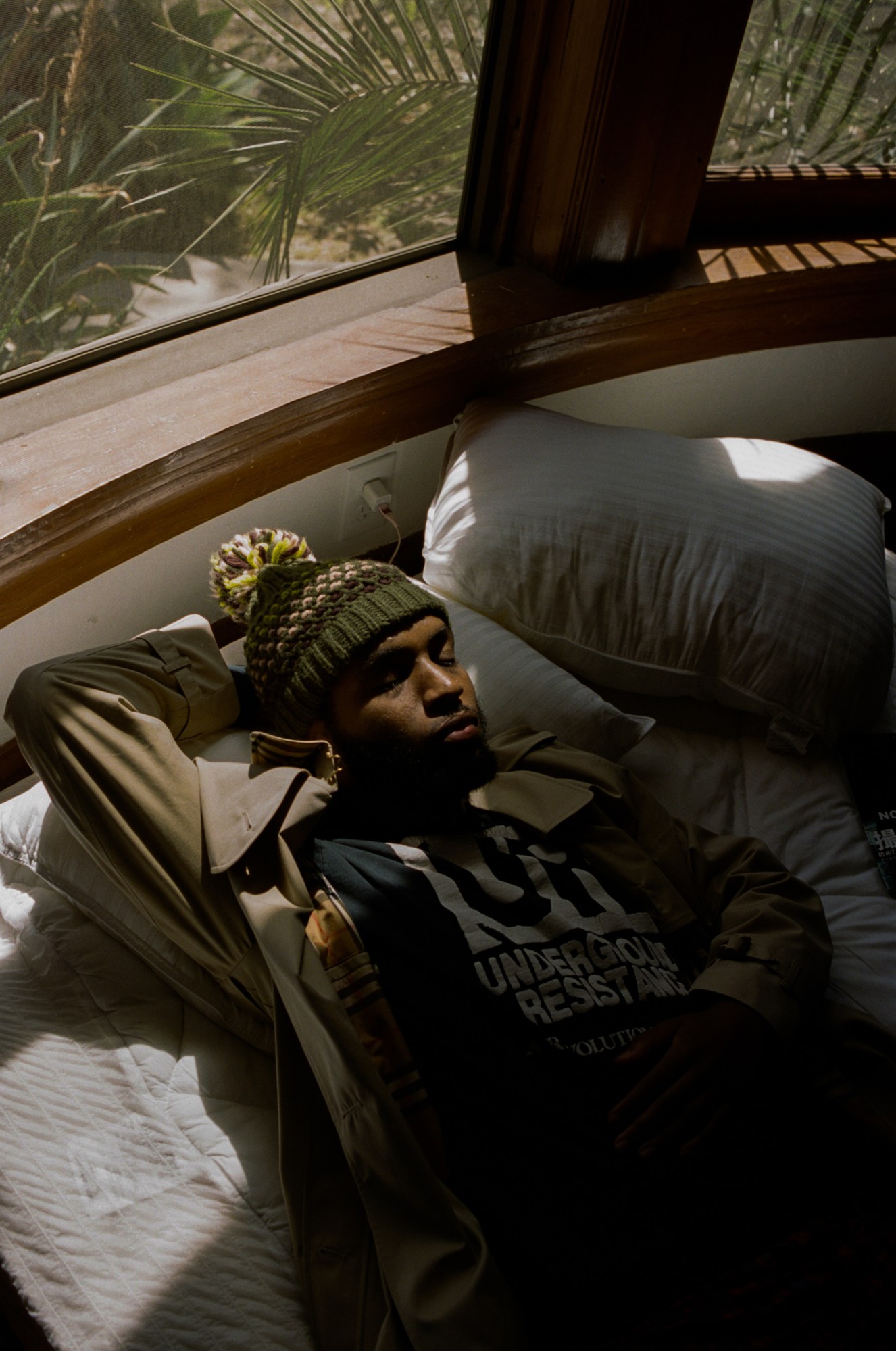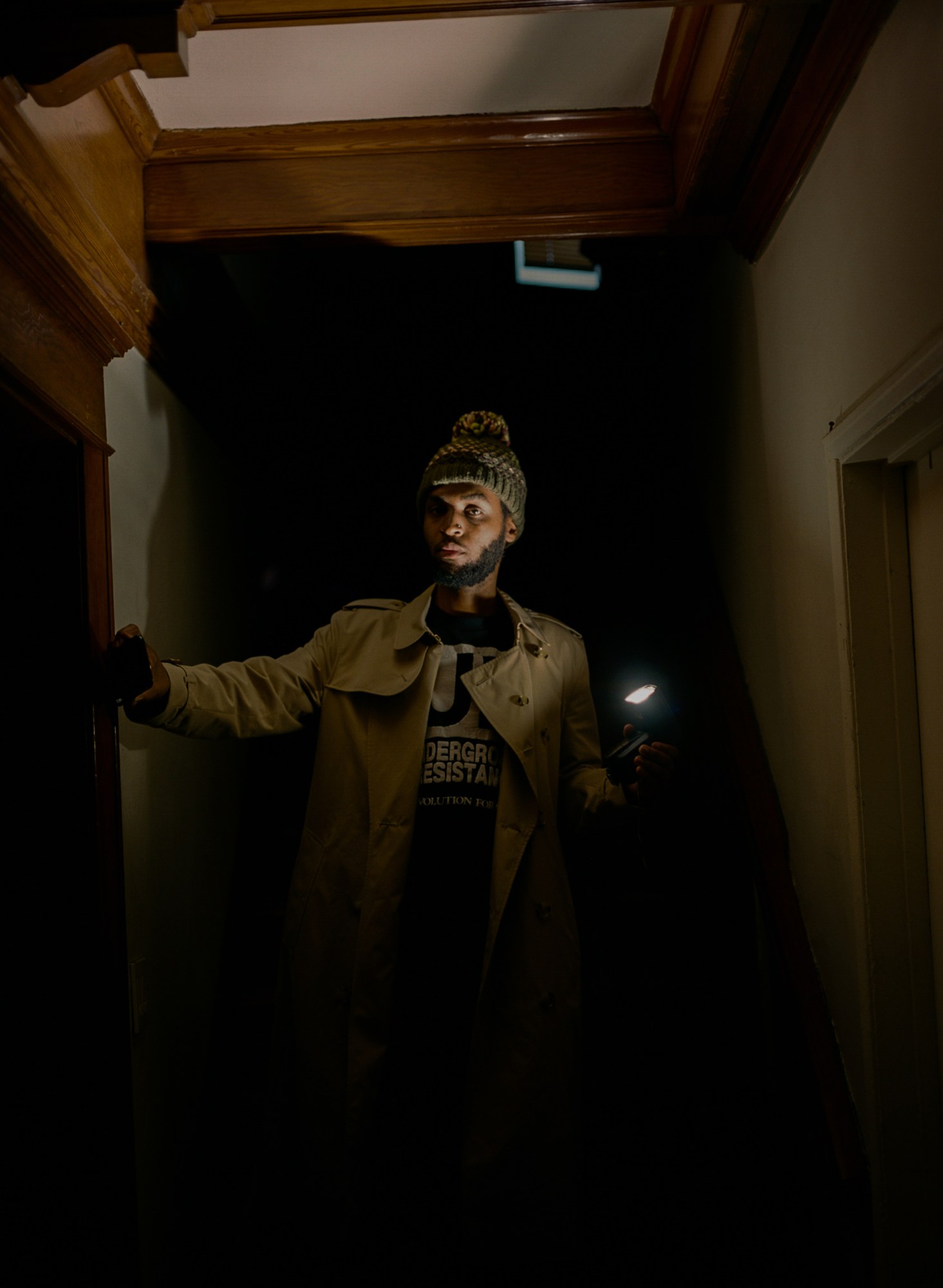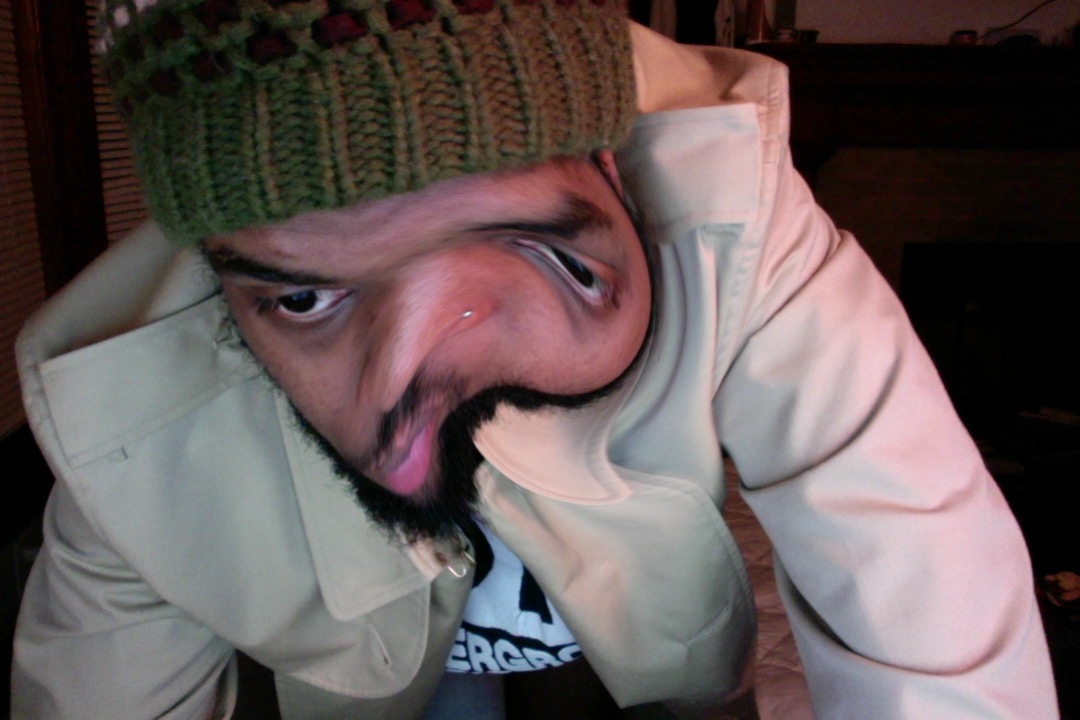By now, you may be familiar with Steven Traylor’s work — last summer, he shot a cover for our Up + Rising Issue, artwork for Earl Sweatshirt, and has exhibited his work in LA and Berlin. For the i-D’s most recent “Utopia in Dystopia’ issue, he recreated quintessential American mall portraits, photographing his community in central Los Angeles against a backdrop of Disney characters. His portraits are warm, and stately and intend on broadening representation beyond just a monolithic image or stereotype. “Seeing healthy images of love, I feel like that shit is so important to the Black community,” he told us at the time. “I feel certain images like that we latch on to are not healthy. So, I want to be able to just represent something that’s like – I don’t know, it’s like you can’t deny it’s like ‘Yo, it’s beautiful’.”
Often, Steven’s images are multimedia: a collage of video, photography, text and music. The multi-sensory approach stems from his unconventional route to photography. The 24-year-old grew up discovering imagery on platforms such as Tumblr, initially inspired by skate videos, and eventually stumbling across an Olympus OM-10, a simple handheld 35mm camera popular in the 80s, which he was reluctant to sell and so learnt how to use. The rest is history.

The native Angeleno describes his work as an ode to his hometown, and it informs his sense of style, too. When we asked him to photograph the iconic Burberry trench coat, arguably a tentpole of British style, he put his own Californian twist on it — photographing himself at home, wearing it over a T-shirt and boxer shorts, with crochet socks and a beanie. “I am a product of LA with no question!” he says. “I think there is a confidence that LA natives have. A lot of things that I gravitate to about LA is the simplicity of something. You can wear a white tee and khakis and probably like a jacket and look fly. You don’t have to wear a million things.”
Here, we caught up with Steven to find out more about how he’s bringing his unique perspective to image-making.

Hi Steven! I noticed that all of your photographs in this project are self-portraits. What was it like photographing yourself?
I feel like initially I wanted to do something that was more serious and had a message. I feel like with most of my work I try to do that, and originally, I wanted to do something like that, but I changed my mind at the last minute, because I was like, you know, why don’t I try something that’s true to me? I’m a goofy guy and I try to find humour in a lot of things, so I wanted to see if there’s a way to do a shoot that’s equally tasteful and humorous. With this project in particular, I wanted to something that was more me — literally me. Just the simplicity of my life and how I’m trying to find ways to laugh at stuff, because I’m a Taurus and I’m a homebody really. I was trying to make it as comfortable as possible and find some jokes.

I guess with fashion photography, you can perhaps be more playful, whereas when you’re doing more documentary photographs, it’s a bit more difficult to tread that line of serious and playful, right?
I definitely think there is room to be playful when it comes to documentary photography, but it is like what you said: there is a responsibility where you’re doing the people that are in the work justice. For me, I want to make anyone I’m capturing the best representation of themselves. That’s where my head is usually at, but I feel like also, at times, I do want to joke around and have fun.

Your work often incorporates collage and more of a multimedia approach to image-making. Can you tell me a bit about that, and the way that you work in creating those multifaceted images?
When it comes to collage and sourcing imagery and stuff, I kind of look at it as puzzling things together, to see what works next to each other. I do feel responsible for producing images in a world that already has enough images, you know? I mean, I love photography, but it’s like, it’s a lot of photos and I think that’s one of my life goals: to think about what I can make that’s worth showing in a world that’s already flooded with imagery and stuff.
That said, I feel like I get the same satisfaction in finding the photo. Like, in a random place as I am, it comes from walking around the street and capturing something. It’s like finding a rare Pokémon card or something, I don’t know how to really describe it, but it’s like coming across something that’s new to you. How will people respond to it? How does the emotion change? I think about all this stuff when I see images on a daily basis — how can this image change the mood or environment in a room?

How do you think the platforms that you grew up with, like Tumblr for instance, shaped your visual language and your understanding of imagery
It was my education. It made me understand, like, what is a good photo? What is an interesting photo? Help me develop the taste level I have today when comes to the arts. You know, with Tumblr and the Internet, you were able spend all day on there looking and learning about at about a million of artists and photographers. It was exciting and liberating, it gave me time to let me know, like, OK, what is possible? I feel like I’m at a place now, where I’m creating the images that I grew up looking at.

Can you tell me a bit about how you first got into photography and what that was like for you experimenting and that technical side of taking pictures?
Well, I came across a camera when I was like, 16 or 17. And initially, I just wanted to get it off. I was trying to sell this camera. I was just wanting to make some money. So, I took it to a few pawn shops and I realised I could only get $30 from it. I just figured I’ll learn how to use this shit. I already had an interest in pictures from Tumblr. I wanted to be a filmmaker when I was younger. I wanted to make skate videos and stuff. I remember there was this repair shop and I used to go up there every day and just ask: What does this do? Ah OK, this is aperture! This is shutter speed! Why is this photo overexposed? Why is this photo blurry? Each time I went, it was just like school and I would learn stuff on YouTube, too. Just little things like I need to know. Then it got to a point where I was able to use a camera. That’s how I initially got into photography, I was just trying to sell a camera, but it ended up being more valuable to me. I’m happy I did it, because that camera right there… I feel like I’m blessed!

Where you are now at this stage, what would you say that is important to you as a photographer? What do you want to express through your work?I mean, I feel like that’s changing, like every day I think about the foundation. My practice of what I’m trying to say is like, finding ways to document. It changes, this changes a lot. I like just documenting culture, like specifically Black LA culture. I feel like there’s not really enough imagery and footage of what LA is today. You can look back and you’ve got Boyz n the Hood and LA culture in the 90s, but it’s been like 20, 30 years, so it’s totally different now. I guess it’s like trying to do that. That’s what I’m trying to do, and I would like to branch out and document other things outside of LA. But I think the nucleus of what I am, is really just trying to document stuff in a way that’s beautiful. I don’t want to be in a service of trying to exploit something or try to sensationalise. I don’t care if it’s like the nastiest person, like, people will look at these certain people as like the most horrible representation of society. If I come across one of those subjects, I want to be able to capture them in a beautiful way and have people see a side of them that they’ve kind of resisted.
